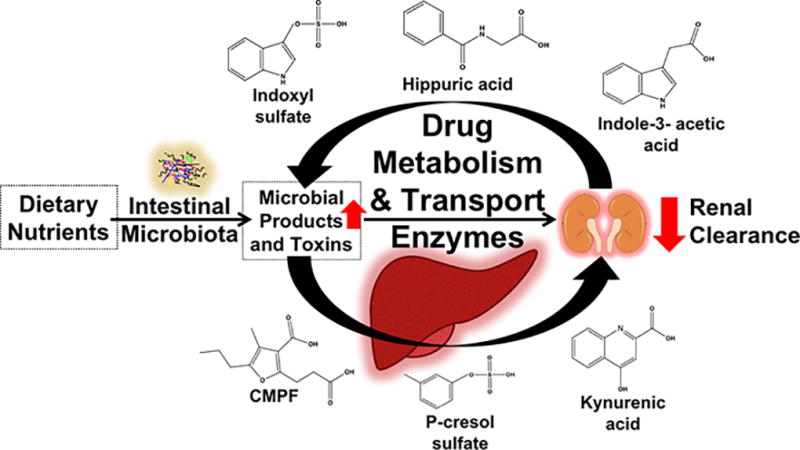Figure 1.

The intestinal microbiota produces several microbial toxins that extensively accumulate in kidney disease likely due to increased toxin producing bacterial species and decreased renal clearance. Microbiota-derived uremic toxins such as p-cresol sulfate, indoxyl sulfate, indole-3-acetic acid, CMPF, kynurenic acid, and hippuric acid perpetrate interactions with phase I/II metabolic enzymes and drug transporters. These interactions occur in the liver and kidneys at the translational and post-translational levels. Patients with kidney disease are at increased risk for adverse drug events, and these accumulated microbiota-derived uremic toxins likely contribute to altered drug disposition.
